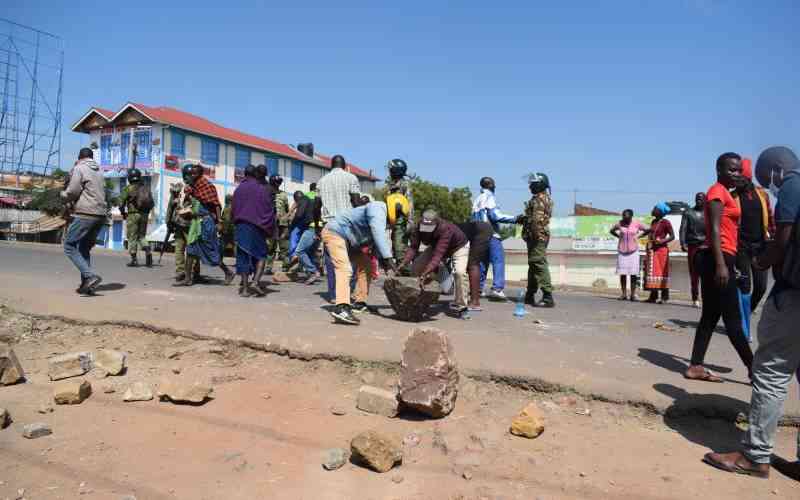
Kinjikitile Ngwale was a historical figure famed for leading the Maji Maji rebellion against German Colonial rule in East Africa. He took advantage of popular discontent, especially over policies designed to force the indigenous population to grow cotton for export, to foment an insurrection.
He convinced his gullible followers that smearing themselves with some "magical" portion was enough to turn German bullets into water. Kenya has been rocked by violent demonstrations. Whilst the right to demonstrate is enshrined in the Constitution, bearing arms and violence is expressly sanctioned. Proponents of these demonstrations have issued a raft of demands that keep changing.